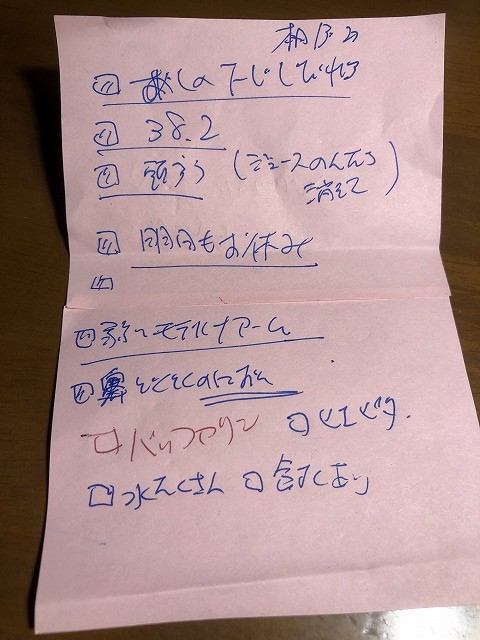2021-09-07 I followed her down to the kitchen and asked her a lot of questions, and she 'scolded me'. [長年日記]
The day after the second dose of the Moderna vaccine, my senior daughter came out of her room in the early afternoon, feeling dizzy.
I followed her down to the kitchen and asked her a lot of questions, and she 'scolded me'.

Afterwards, I was ordered to go to the supermarket to buy some additional fruit.
Today, she seems to be sleeping and waking up all day long.
She looks like a "full combo" too.

